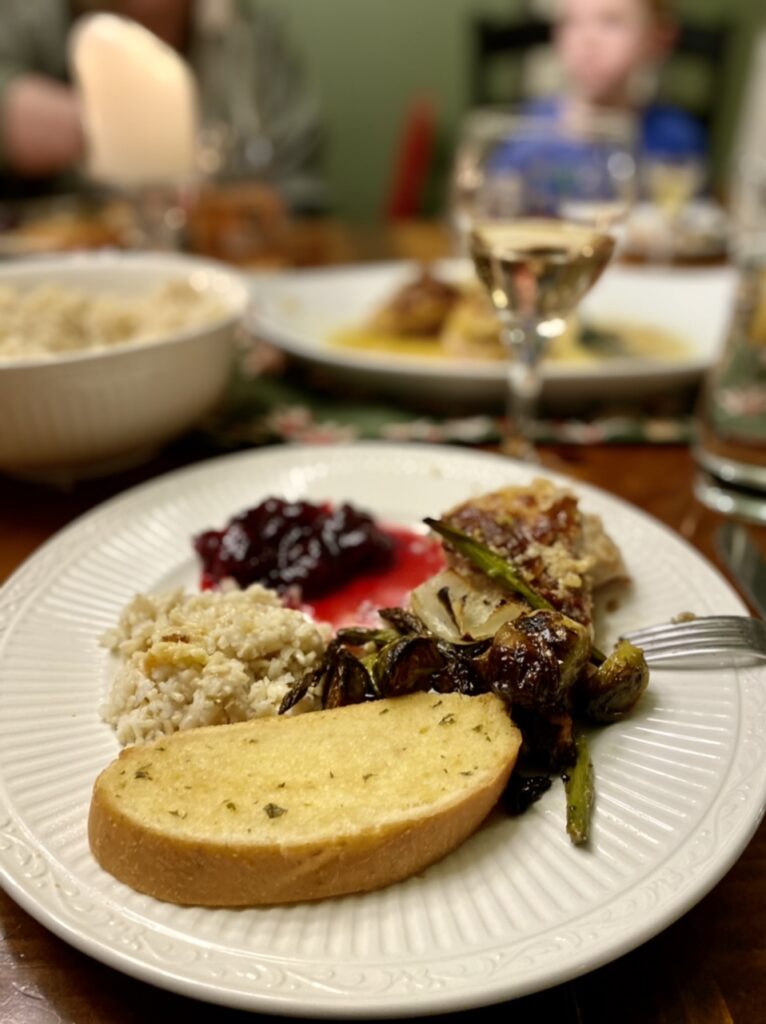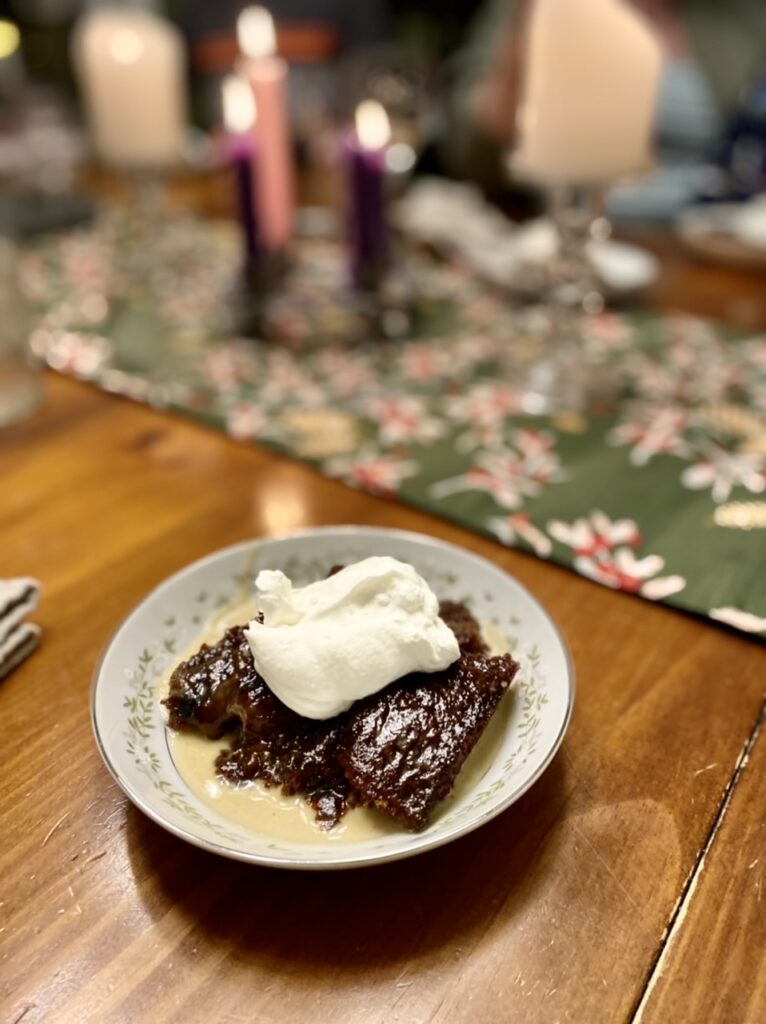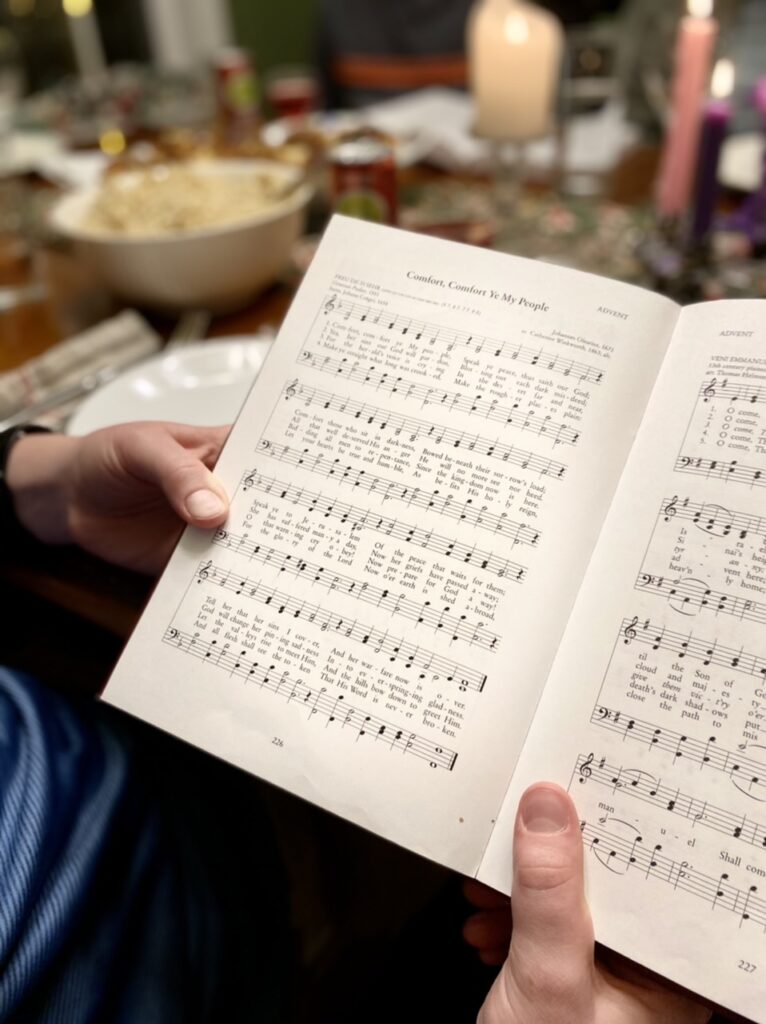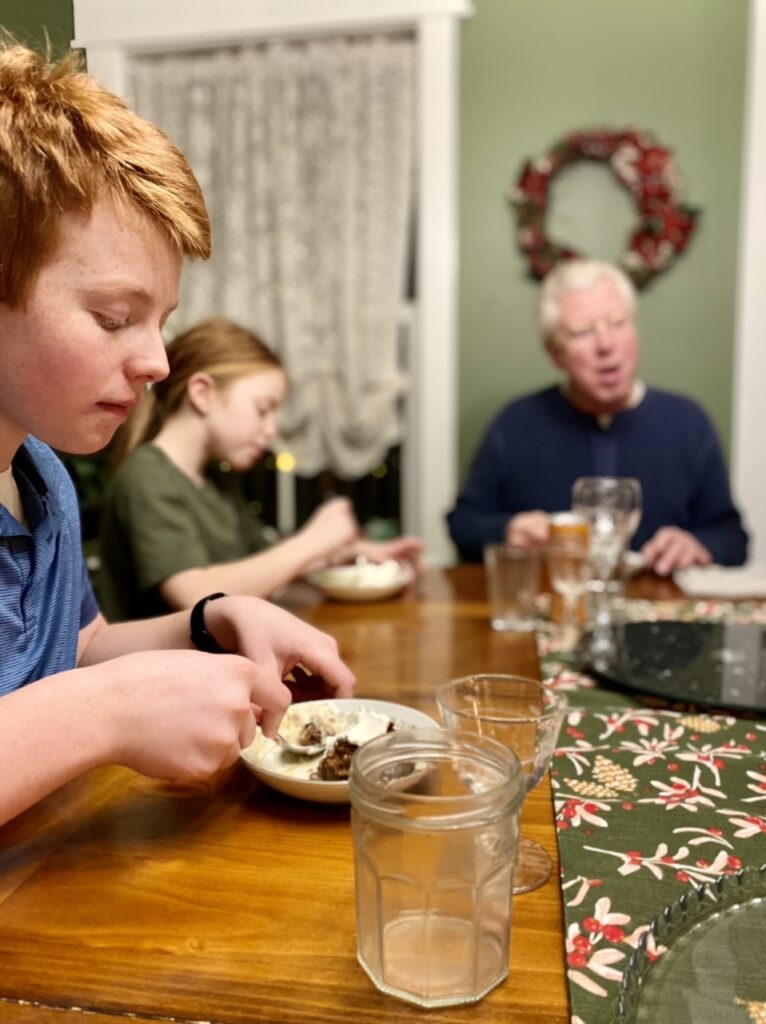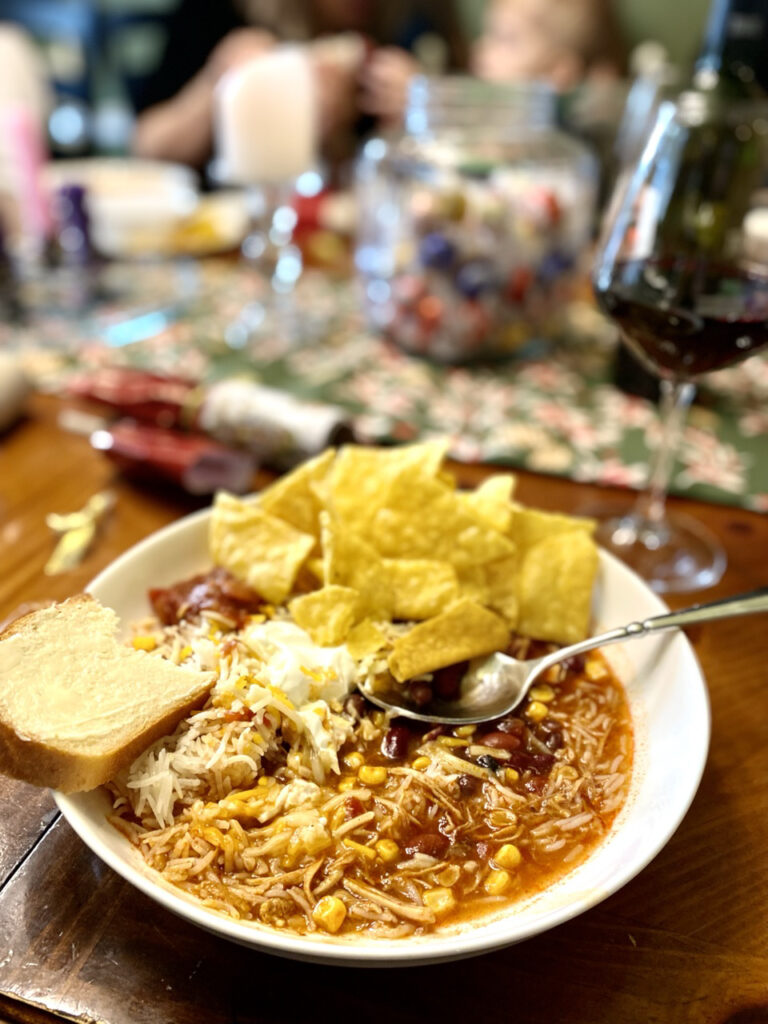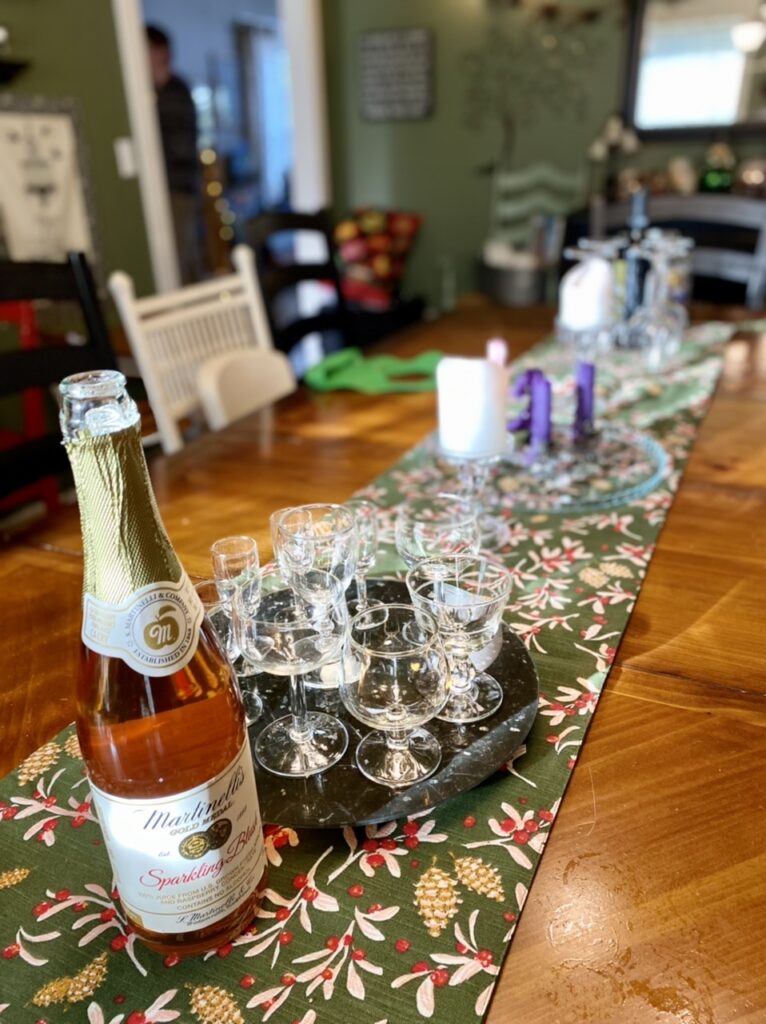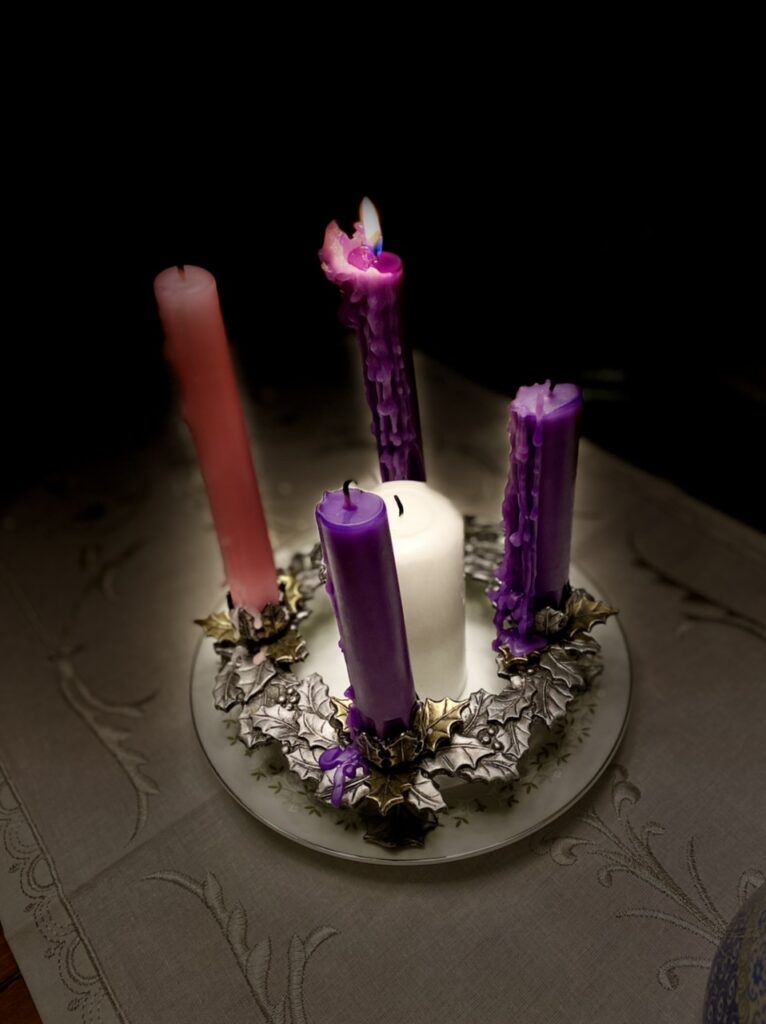While my friend Mystie Winckler knows my “personality type” much better than I do, I am self-aware enough to know that I am neither a classic introvert nor a traditional extrovert. Perhaps most of us are like that: somewhere in between the two extremes. (Makes sense to me.) I love alone time, especially if I can read a book or listen to music. Having some time with sensory-relief is a huge gift to my soul, my brain, and even my physical body. It has taken me a few decades to figure that out, but God continues to graciously show me more about His creation as I grow & age… and that includes His grace in showing me more about even myself, a fearfully and wonderfully made creature in His image. And I’ve learned that I need to continually be seeking balance between busyness and being still, noise and quiet, community and solitude.
As a full time homeschooling mother of five exuberant kids, my daily life, routine, and occupation is naturally one of built-in (shall we say inescapable?) community. Solitude tends to be the thing which is harder to come by. Ask any mama, and she will tell you that hitting the bathroom alone for five minutes is a gift as rare as a pint of ice cream to herself. Going outside for a walk on my own feels downright selfish sometimes, yet God loves to use that kind of time to restore my soul and refresh me in the light of His mercy and the presence of His creation. So I am learning to lean in to the opportunities for solitude which He occasionally presents to me – seeking to accept them as gifts with a heart of gratitude.
But I confess that I do not always lean into the opportunities for community which He presents… largely because I can sometimes often feel “peopled out.”
So this is where it goes back to what I said at the beginning: I have learned that I need to continually seek balance between the two extremes. After all, we were made for community. Really. We were actually created with community in the Creator’s mind! Just check out the book of Genesis for proof of that. Chapter 1 verse 26 talks about creating man in “Our” image, so the Triune God was telling us right from the getgo that we were created to be community-minded. And in chapter 2 verse 18, we find out that God sees His crowning creation, and declares that it needs even more community! Not just walking in the garden in the very presence of God. Not just hanging out with all the animals. But another human. It was not good for Adam to be without Eve as his helpmeet. And then along with that other image-bearer, there would be fruitfulness and multiplication… more humans! Bigger community!
Therefore, the biblical basis for community is right at the forefront of the Scriptures, and at the center of the Gospel. The Great Commission in Matthew 28:16-20 has foundational elements of community: make disciples, go to all nations, baptize in the name of the Trinity, Jesus will be with us always. Our Lord wants us in community.
I find it honestly encouraging to read in the Gospels about how Jesus Himself engaged in different levels of community: He would pray in solitude, He was knit specially to John (known as the disciple Jesus loved), He spent the majority of His ministry hours with the twelve disciples, and He taught the multitudes. His work, His fellowship, His time – it was spent in different ways, and we can be encouraged to follow the example He set of spending ours in ways which reflect those various spheres as well.
Obviously there are different forms of community, and there are many facets of each. Each person – and each family – has different needs inherently knit into their very selves. But the need for community is common to all.
I think it is helpful to look at “community” in some concentric circles. I am talking about community person-to-person(s), so let’s just agree that the indwelling of the Spirit is a foundational communing, since I am a believing Christian who has faith in the Triune God, which is the undergirth for everything else that I pursue or cultivate.
My nuclear family is my closest community – for me personally that includes my husband and our five kids – all of us who live under one roof and commune together day in and day out, for better and for worse, in sickness and in health. Then my extended family comes next – my parents, grandma, and brother’s family all live close enough that when it comes to things like celebrations, holidays, lending a hand, bearing burdens… these are the ones that we rely on, and who know they can rely on us in return. (We do have extended family on my husband’s side as well, but three thousand miles between us makes tightknit community difficult. So they would share this concentric circle in our hearts and minds, but rubber meeting road plays out very differently on the practical side. When it comes to cultivating community, distance makes a difference.) I will also note here that “extended family” does not have to be limited to those with whom you share blood relations. In a version of Psalm 122 that I grew up singing, there is a phrase which describes “friends no less than brethren dear” – which has always struck me as a beautiful translation: there are sometimes friends who are quite literally family to us in every practical way, and they are absolutely no less than dear brethren. Don’t be discouraged if your “extended family” circle is made up of friends. (Shared DNA isn’t everything.)
And then the next concentric circle is where we begin to branch out into people with whom we share less genetics and family vacations. That would be, for us as Christians, the local church. In our fifteen years of marriage, we have been part of a few churches, and while I am fully ready to never have to move churches again, I can tell you that we have completely jumped into whichever church has been our home at the time. We don’t believe in just claiming a pew for two hours every Sunday, but then living disconnectedly for the rest of the week. We have sought to embrace our position in a local body with hospitality, service, humility, joy, honesty, and a desire to give of ourselves and our resources. This can look like serving in an official capacity in a church, or it can look like showing up every time there is something going on at the church or within the families who make up its body. It can look like attending weekly Bible study, taking the initiative to work in the kitchen at the monthly after-service potluck, inviting people from church over on a regular basis (weekly? monthly? quarterly?) for any number of meals or activities or excuses for fellowship. It also looks like sharing the burdens of our lives with this group of people. We rejoice with those who rejoice and we grieve with those who grieve – and those are some of the most obvious community-building elements that pop up week by week and year by year within a church body. Not only embracing the needs of others, but being willing to share the needs in our own life – that too is part of cultivating community.
As far as close community, those spheres are sort of the givens, the gimmes, the nonnegotiables.
You have a family? That’s community. You have extended relatives? That’s community. You are part of a church body? That’s community too. So start there. Pursuing community in those most intimate of circles is hugely important. It’s also the best place to try out your skills, test your gifts, and put ideas on trial. If you want to be the person who hosts a monthly Soup & Psalms night, then I suggest you find your best soup recipes by trying them out first on your family (who will give you the most honest feedback – watch their faces for feedback, too, and see if someone grabs for the salt or pepper or hot sauce), and also try out the singing in your closest circle before extending it to others. Dispersing my children amidst a group of people who are new to Psalm singing is a great way to spread courage. If my kids are confident with a song, they will sing with both skill and gusto – which tends to breed confidence in the people around them. Not only does it give guests something to listen to and sing along with, to increase in skill themselves, but if they find themselves thinking that they can’t carry a tune in a bucket, they will find confidence in thinking that my children are loud enough to cover up their sour notes or wrong lyrics. (I can say this because I have been told this on multiple occasions.)
Have the foundation of good community in your home, and find what kinds of hospitality practices work well with your extended relatives… then have the courage, humility, and willingness to invite your church community into some of these experiences – as well as be eager to lean in to the opportunities which arise for you to accept invitations, receive hospitality, and attend community-building events. Cultivate community with these closest circles in your life. It glorifies the Lord, and it will bear fruit in a merciful disproportion to the effort it takes to pull off.

